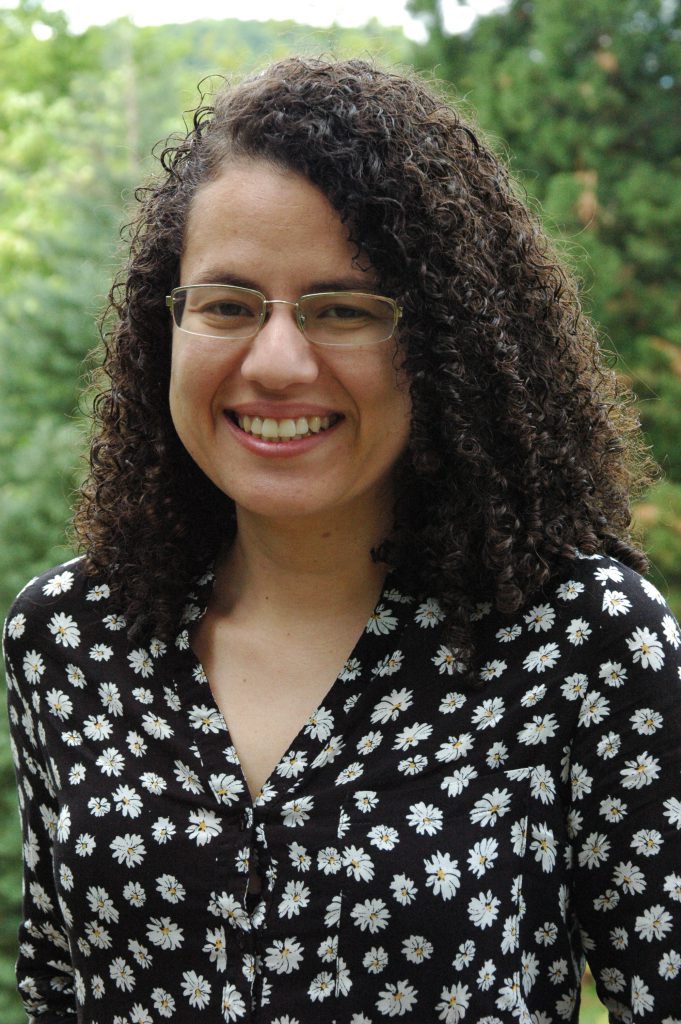From Brazil to Germany: Challenges and Advantages
An Interview with HITS researcher Ariane Nunes-Alves about her experiences in Brazil and Germany.
You were born and raised in São Paulo and also did your studies there. When you decided to come to Germany for your PostDoc, how much did you know about the country?
One thing that attracted me to Germany was that in fact I didn’t know much about the country. In Brazil, we have a closer connection to the US, because of movies and so on. And I had been to the US before, but never to Germany. The only thing I knew about beforehand was the famous “Oktoberfest” and the historical facts about World Wars I and II I’d learned at school, but otherwise I had absolutely no knowledge about the life and culture here.
What was your first impression then when you arrived here?
The first time I came here was in October 2017 for my job interview– and I found the city (Heidelberg) very cute! It’s so beautiful with all those historical buildings, especially since we don’t have many of those in Brazil.
You’ve been here for some time now, what are the main differences between Brazil and Germany?
Oh, the weather! It’s really cold here. For me, Germany has only three months of summer and nine months of winter. And then the culture is very different, of course. I would say that people in Brazil are way more open. So sometimes I have the feeling I am maybe a bit too talkative for Germany (laughs).
Fair point. But is there also something people in Brazil and Germany have in common?
They both like beer…but German beer is so much better! And I think at the end of the day, German people also like parties, such as the Oktoberfest or New Year’s celebrations. And during those times I really feel like I am back in Brazil.
What about the research environment in Germany compared to Brazil or the US? What do you think are the main differences?
I did my studies in Brazil but spent some time during my PhD in the US as well. I think the main cultural difference is that people in Germany really value a good work-life balance. Excessive overwork is not promoted in Germany. Instead, people try to get their work done during their normal work hours and then they enjoy their life afterwards. And this is really a nice thing! Especially at HITS it’s great because it’s a comparatively small institute and it really feels like a family that takes care of its members.
In your article you describe the way you went through your studies and why you did things in a certain way. You ended up being very successful. However, looking back, is there maybe something you would have done differently?
When I was a PhD student, I felt uncomfortable talking to people, because I was afraid I might bother them. So, looking back, I really should have talked to more people and maybe I should have done my PhD abroad as well.
You have been successful nevertheless! How do you feel now being at HITS?
I am in Paradise! I love my life here and I appreciate my group. My group leader Rebecca is such a great supervisor. I am surrounded by smart people and we usually have excellent discussions about science. Sometimes people in science become super successful, but then they tend not to care about other people much. But Rebecca is different, she really does care about her group members and I really enjoy working here.

Dr. Ariane Nunes-Alves joined the Molecular and Cellular Modeling (MCM) group at HITS in January 2018. She was born and raised in São Paulo (Brazil) and has written the article “From Brazil to Germany: Challenges and Advantages” about her experiences of moving across the world to pursue her scientific career. The article was published in the Journal of Chemical Information and Modeling (JCIM): https://pubs.acs.org/doi/abs/10.1021/acs.jcim.9b00764
About HITS
HITS, the Heidelberg Institute for Theoretical Studies, was established in 2010 by physicist and SAP co-founder Klaus Tschira (1940-2015) and the Klaus Tschira Foundation as a private, non-profit research institute. HITS conducts basic research in the natural, mathematical, and computer sciences. Major research directions include complex simulations across scales, making sense of data, and enabling science via computational research. Application areas range from molecular biology to astrophysics. An essential characteristic of the Institute is interdisciplinarity, implemented in numerous cross-group and cross-disciplinary projects. The base funding of HITS is provided by the Klaus Tschira Foundation.